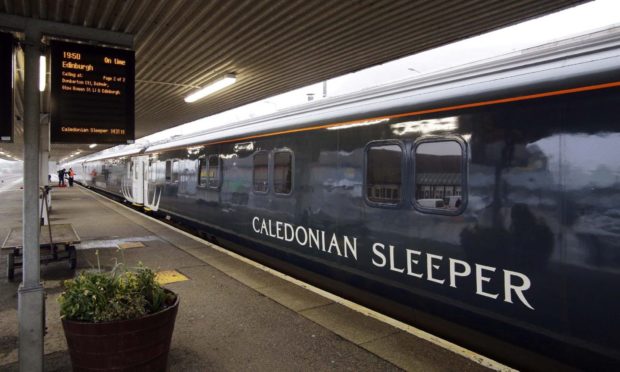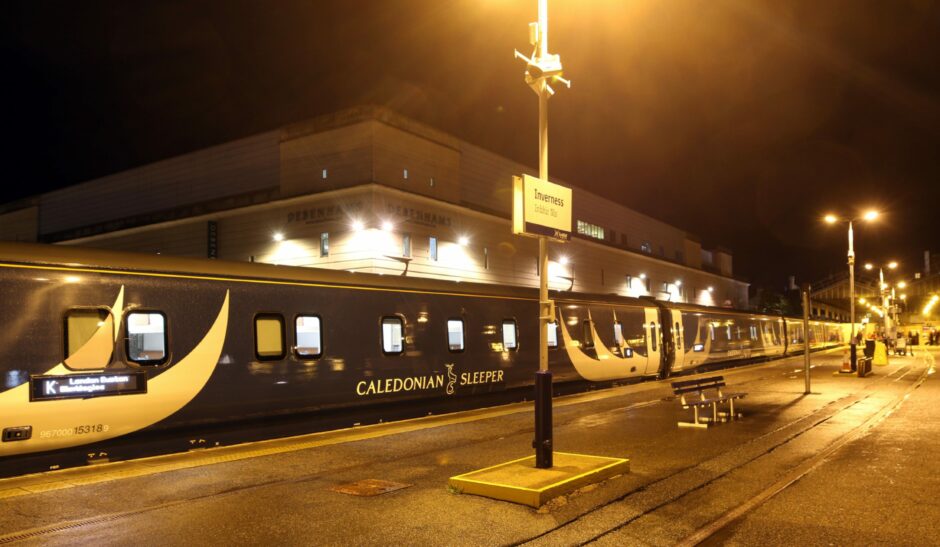The Caledonian Sleeper service will be brought into public hands from this summer, the Scottish Government has announced.
The iconic Highland train service connects Inverness, Fort William and Aberdeen with London via Edinburgh and Glasgow, all done in comfort and style.
Journeys between Inverness and London take 11 hours overnight with passengers transported from the hustle and bustle of the big city to the tranquil Scottish Highlands.
It was announced today that the service will be brought back into public ownership on June 25 by Transport Minister Jenny Gilruth.
She told MSPs the decision to remove the contract from Serco should not be seen as a reflection of the firm’s operation of the service.
“The decision will provide a stable platform for the provision of Sleeper services and it will also provide certainty for staff and, of course, the travelling public.
“I would like to make it very clear that the Caledonian Sleeper staff will transfer to the Scottish Government-owned entity, with their terms and conditions protected.”
Ms Gilruth suggested the decision may not be a permanent one, adding she and officials would monitor “market conditions” in the rail sector and the wider economy.
Following the announcement, managing director of Serco’s Transport business, John Whitehurst said: “We are disappointed that the Scottish Government did not ensure value for money by examining the possibility of a Direct Contract Award to Serco.”
He added that since taking over the service in 2015, they had made “massive improvements” to every aspect of the service despite “significant losses on the contract”.
Serco contract did not represent ‘value for money’
Ms Gilruth said last year an offer to re-base the Serco contract did not represent “value for money” for the public purse, saying she also rejected the possibility of a direct award to the firm or putting the contract out to tender.
Mr Whitehurst said: “Unfortunately, the Scottish Government has not requested a costed proposal for a Direct Contract Award, which would have allowed Scotland to benefit from the expertise of our Serco
Transport senior management team who understand this complex and unique hospitality-focused train operation like no one else, while also enabling Scottish Ministers to be in complete control of the contract.
“Most importantly, this would have allowed the Scottish Government to compare the price of such an award with that of their arm’s length Operator of Last Resort company.”
Ms Gilruth acknowledged the success of Serco’s stewardship of the service but said she feels there is a “real opportunity” for the Scottish Government in public ownership.
Several officials, including Ms Gilruth, believe ScotRail and Caledonian Sleeper services should be combined to reduce train fares but there are no current plans for this.
Train drivers union Aslef’s Scottish organiser Kevin Lindsay said Serco’s control of the service had been “an abject failure”, and he voiced disappointment that Caledonian Sleeper and ScotRail franchises are not being combined to help reduce fares.
Ms Gilruth added fares in Scotland are lower than in the rest of the UK and pointed to plans to pilot a scheme removing peak fares across the network.
Responding to the news, RMT general secretary Mick Lynch said the Scottish Government has “done the right thing” in bringing all of its passenger rail services into public ownership.



Conversation